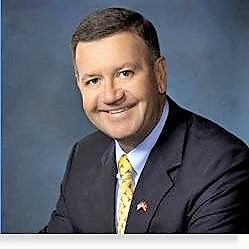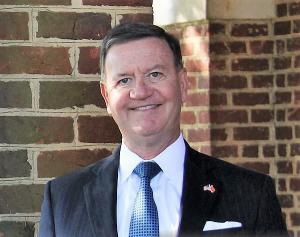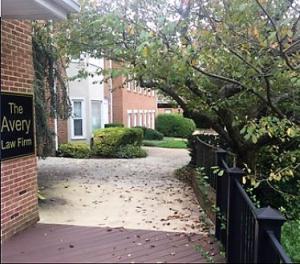Personal injury lawyer Michael L. Avery comments on Quisenberry v. Huntington Ingalls Inc., involving Asbestos exposure

Logo of The Avery Law Firm, Michael Avery, Virginia

Michael L Avery, attorney Fairfax, Virginia
A recent Virginia case reviewed whether employers have a duty to warn employees about exposing their family members to asbestos carried home from the workplace.
The Avery Law Firm (N/A:N/A)
Quisenberry case was a result of a certification of question from the United States District Court for the Eastern District of Virginia for the following question: "Does an employer owe a duty of care to the family member of an employee who alleges exposure to asbestos from the work clothes of the employee, where such exposure takes place off of the employer’s premises and the employer has no relationship with the family member?"
Virginia Supreme Court restated the question as follows: "Does an employer owe a duty of care to an employee’s family member who alleges exposure to asbestos from the work clothes of an employee, where the family member alleges the employer’s negligence allowed asbestos fibers to be regularly transported away from the place of employment to the employee’s home?"
The case stems from the death of Wanda Quisenberry, who passed away in 2016, three years after being diagnosed with “malignant pleural mesothelioma, caused by exposure to asbestos dust and fibers.” The estate alleged that the exposure occurred from Ms. Quisenberry’s father, who worked at what is now the defendant decades ago and during his work, Mr. Quisenberry carried home the asbestos dust and fibers on his work clothes, which led to the exposure.
Upon removal to federal court, the defendant sought to dismiss the case based on the argument that the plaintiff was relying on “take home” exposure liability, which had not been recognized by the Virginia Supreme Court. Eventually, the district court certified the question to the Virginia Supreme Court.
Virginia Supreme Court began its analysis with the general rule that duty to exercise due care to avoid injuring others “is owed “to those within reach of a defendant’s conduct.” (internal quotation omitted). The court went on to explain that while no such duty exists if there is no relationship, “the existence of a duty does not depend on proving a particular relationship, but arises from that basic and necessary regulation of civilization which forbids any person because of his own convenience, to recklessly, heedlessly or carelessly injure another.” (internal quotation and alteration omitted). Put another way, “[t]he only ‘relationship’ which must exist [for a duty to arise] is a sufficient juxtaposition of the parties in time and space to place the plaintiff in danger from the defendant’s acts.”
“Thus, that harm in the present case occurred at a location removed from the employer’s business and after hours is a distinction without a difference. The artificial hazard created by the Shipyard – asbestos dust – was allegedly released through the Shipyard’s course of conduct and moved to place Wanda in danger. The nature of the hazard allegedly created by the Shipyard’s conduct was that asbestos fibers, the inhalation of which could cause mesothelioma, regularly accumulated on the clothes of workers during the day and were released again when those workers returned home and had their clothes washed, thus placing Wanda and others similarly situated within reach of the Shipyard’s conduct and within the ‘zone of danger.’ This created a ‘recognizable risk of harm’ to those sharing living quarters with the workers, resulting in a duty of ordinary care to that class of persons.” Therefore, the court concluded that the defendant did owe a duty of care to the plaintiff and recognized take-home duty in Virginia. The case is Quisenberry v. Huntington Ingalls Inc., Record No. 171494.
About Michael L. Avery, Sr.
Michael Leon Avery, Sr., personal injury attorney in Fairfax, Virginia. Michael Avery has over 20 years of experience in advocating for clients who have been injured in a wide array of accidents—from car and truck accidents to bicycle crashes to accidents caused by drunk drivers. He became a lawyer after a distinguished career in the U.S. Marine Corps.
Practice Areas include:
* Auto Crashes
* Vehicle Rollovers
* Motor Vehicle Fatal Injuries
* Commercial Vehicle Accidents
* Uninsured / Underinsured Motorist
* Claims
* Distracted Driver Accidents
* Road Rage
* Truck Accidents
* Hit-and-Run Accidents
* DUI Accidents
* Passenger Injuries
* Motorcycle Accidents
* Bicycle Accidents
* Pedestrian Accidents
* Slip and Fall
* Personal Injury
References
Law Firm Website: https://averyassociateslaw.com/
Blog: https://michaelaveryesq.law.blog
News: https://attorneygazette.com/michael-avery%2C-virginia
Attorney Profile: https://solomonlawguild.com/michael-avery%2C-attorney
LinkedIn Profile: https://www.linkedin.com/in/michael-l-avery-sr-6b02012/
News: https://hype.news/michael-avery-esq
Michael Leon Avery, Sr.
The Avery Law Firm
+ +1 703-462-5050
email us here
Visit us on social media:
LinkedIn
PBS News Hour: The stunning truth about asbestos use in the U.S.
Legal Disclaimer:
EIN Presswire provides this news content "as is" without warranty of any kind. We do not accept any responsibility or liability for the accuracy, content, images, videos, licenses, completeness, legality, or reliability of the information contained in this article. If you have any complaints or copyright issues related to this article, kindly contact the author above.



